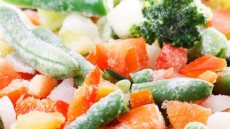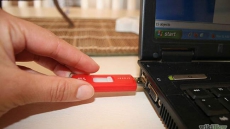KABUL — Afghanistan's mineral wealth is helping fuel the war that has long ravaged the country, with armed anti-government groups — including the Taliban — earning up to $20 million a year from illegal mining of lapis lazuli, a London-based corruption watchdog said on Monday.
The group, Global Witness, appealed in its new report to have lapis lazuli, a blue stone almost unique to Afghanistan, classified as a "conflict mineral."
The lapis lazuli mines are mostly concentrated in northern Badakhshan province where the stone has been mined for centuries for use in jewelry and ornaments, prized for its bright blue hues. The province has been "deeply destabilized" by violent competition for control of the mines between local strongmen, law makers and the Taliban, Global Witness said.
Badakhshan is also a microcosm of what is happening across the country, as mining has become the Taliban's second biggest source of income, after drugs. The Taliban, who have been fighting to overthrow the Kabul administration for 15 years, control the production of opium poppies, mostly in the southern province of Helmand, the raw material for most of the world's heroin. The drugs trade is worth up to $3 billion a year, experts have said.
Afghanistan's mineral and petrochemical assets are believed to be worth billions of dollars, but the government does not have the money or expertise to develop them, and international firms are deterred by the deteriorating security situation.
Global Witness said that if properly developed, these assets could earn the government $2 billion in annual revenue. The report says the government lost at least $17.5 million in revenue from lapis lazuli alone in 2014, and $10 million in 2015.
The total earned by armed groups in 2014 was $19.9 million, the group added, noting that a local strongman identified as Abdul Malek had paid $750,000 in protection money to the Taliban out of proceeds from the illegal lapis lazuli mining. Last year, Malek paid the Taliban $4 million, the report says.
The classification of a stone or gem as a "conflict mineral" is meant to show that its sale helps fund war and fuels human rights abuses in the countries where it's produced. Probably the best known are the "blood diamonds" mined in African countries, including Angola, Democratic Republic of Congo and Liberia, which were used to fund war in those countries. A U.N. resolution recognized the issue in 1988, proposing measures that could trace diamonds from their origin to point of sale.
Should Afghanistan's lapis lazuli be classified as a conflict mineral, it would oblige Kabul to regulate the mines and possibly set up a central bourse to ensure accountability and transparency for each stone, a proposal made by Afghanistan's former minister of mines, Daud Saba, who resigned earlier this year.
Without government regulation or control, mining assets have been slipping out of Kabul's control. Global Witness said the Badakhshan lapis lazuli mines have also become a "strategic priority" for Afghanistan's Islamic State affiliate, which emerged over the past year mostly in the country's east, along the border with Pakistan.
"Unless the Afghan government acts rapidly to regain control, the battle for the lapis mines is set to intensify and further destabilize the country, as well as fund extremism," Global Witness said.
The government banned lapis lazuli mining in early 2015 as the mines could not be secured, Afghan officials have told The Associated Press. But the mining continued with impunity, with local police and politicians reportedly benefiting from the illegal extraction and export of the stone.
Much of the illegal lapis lazuli exports go to China, "where it is prized as jewelry," Global Witness says. "The fact that Chinese lapis sales are funding the Taliban comes in contrast to the Chinese government's official position as peace-broker on Afghanistan in regional security talks."
Beijing is part of four-country consultations with Afghanistan, Pakistan and the United States, aimed at bringing the Taliban into a peace dialogue to end the war.
The Taliban are expected to step up violence this year as their new leader, Mullah Haibatullah Akhundzada, moves to consolidate his position after his predecessor, Mullah Akhtar Mansour, was killed in a U.S. drone strike in Pakistan last month.
If Kabul cannot secure the nation's vast mineral assets — which also include coal, iron ore, copper, gold, chromite, lithium, onyx, marble, rubies and emeralds — there are fears they will fall into the hands of armed groups with cross-border connections to ensure enormous profits.
In a report last year, the U.S. government's Special Inspector General for Afghanistan Reconstruction said Afghanistan's minerals and hydrocarbons sector had the potential to "provide the Afghan government with billions in much needed funds in the coming decades."
But SIGAR also questioned Kabul's ability to develop the sector in a sustainable and co-ordinated way, noting that the $488 million that the U.S. government has invested to help develop Afghanistan's extractive industries "could be wasted."





